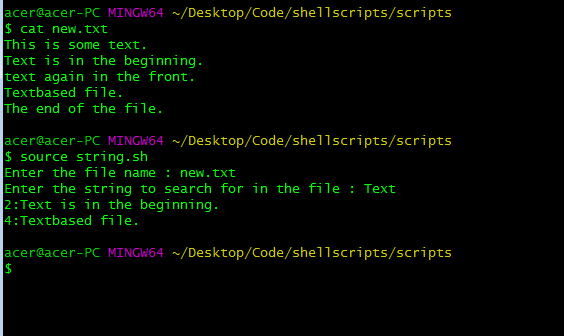
Grep is a command line tool available on many operating systems. The extended regex language includes all basic meta-characters as well as additional ones. You can also use a regular expression by using the -E flag instead of grep. If you enter an asterisk, you will get a lot of confusing output. To search for words by name, you can use grep. READ ALSO: How Do I Change My Answering Mode? You can use this command to find files with a pattern if you have a lot of files. It shows all the files with file names ending in.ps. You can also use grep for match tests, which are useful when you need to locate files by their name.

It will not only print matching files but also return a list of files. The grep command will search the entire file system for the specified pattern. If you want to find files by their file name, you can use the command “grep”. It’s worth noting that “-i” specifies case sensitivity. We want to find those files, so we use grep -i. For example, if we type grep -a, we want to find all files with the.log extension. The “-i” option searches only specific files, while the “-c” option matches all files with the same extension. When running grep, it looks for multiple strings, and uses them to find exact matches. First, let’s start by explaining what grep is. With multiple grep files, it is possible to run the same command on several files at once. It searches for strings and words within files and returns a list of lines that contain the words or strings in question. If you have been looking for a way to search for multiple strings or words in a text file, grep is an excellent tool to use. The “-c” parameter allows you to count the number of times a search string occurs. For example, if you’re looking for grep multiple strings in Linux, you’ll want to include the “.log” extension. Using the file extension will search for the file name, but will also count the number of files with the same extension. You can search all files in a directory or use file extensions to narrow down your search. Using grep to search for multiple strings is extremely useful when working with large data files. The output will include the name of the file, as well as a line that matches your pattern. Once you have the filename, use a colon to separate the lines and then type the desired pattern.
#Grep multiple strings in a file how to#
The example below shows how to run grep to find strings in a document. You can use grep to search for more than one word or in groups of files. Grep searches for multiple strings, based on their length and pattern. The output matches in both cases the output from running grep -c with each pattern individually.Before learning how to Grep multiple strings in Unix, it’s important to understand how to use a grep command. Output with pat='^a a$ alfa beta gamma': beta 2

Output with pat='alfa beta gamma': alfa 1

#Grep multiple strings in a file update#
Note if your pattern contains space, you need to use a different delimiter between the patterns in pat and to update the split command accordingly. The c?c:0 bit uses the ternary operator to print 0 when c is zero. Pat is split into the p array, which is then used to search for matches on each line ( $0 ~ p). Please tell me if there still are any open issues. Just give the search strings directly to the scriptįixed version with regex support (see comment below). Low end version with restrictions outlined in comments below: awk 'įor (i in a) print sprintf("%s %d", a, A]) But it's easy to add some features if so desired. And works for plain words only - not regexps. This solution may not work well for large files (is not optimized). I don't think grep is capable of what you want to do.


 0 kommentar(er)
0 kommentar(er)
